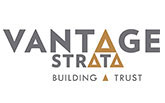
“Cash is King” is an expression I have often thrown around in relation to property matters. No doubt I picked it up from an early mentor of mine who also fancied the mantra. However catchy a line it may be, the principal behind it is by no means universal. When it comes to funding major works within a strata building, such as repainting or lift replacement, it is worth scrutinising the numbers carefully to determine if cash is in fact king, or if another option may be more appropriate.
Strata Finance is emerging as a serious business. Whereas 5 – 10 years ago it was pretty well unheard of for an Owners Corporation to take out a loan, these days it is becoming much more commonplace. It is fair to say that a degree of suspicion still exists among owners, and there is a certain stigma about purchasing into a strata building which is carrying significant debt. However, as more time passes I would be willing to bet that eventually the market will simply accept this feature as par for the course.
If you are inclined to look into it as I have, you will find that once you get past the superficial perception issues, there are actually a number of strong economic arguments in favour of using finance to fund projects for an Owners Corporation if it does not already have the cash at hand.
Say an Owners Corporation is faced with the need to replace a lift that has reached the end of its life. There are 100 units in the complex and the works will cost $750K. The options are either raise a special levy of $7,500 per unit (average) or obtain funding through a strata finance lender. The second option will cost more in terms of raw numbers, as there will be interest applied to the principal until it has been repaid, usually between 5-10 years. However, consider some of the other secondary cost factors that may not be immediately obvious, such as;
- Many owners simply will not have $7,500 to come up with at short notice even if they want to. There may be a lag of many months or even longer;
- A building without a working lift may require discounted market rent. Weekly rent discounted to say $5 – $10pw at 6 months assuming half the units are rented could be as much as $26,000 in lost rent for investors
- Delays in having the work done may impact on unit values. Even a small impact per unit would equate to a significant value across all units in principal
- Interest applied to a loan would be an administration fund expense, which may be tax deductable for investor owners. In that case the tax discount should be considered as part of the equation
Whether or not borrowing money makes the most sense in the circumstances is not entirely the point. What is clear is that owners should consider the merits of alternative funding solutions before ruling it out – in the long run it may well pay off to do so.
For further information, please contact Chris Miller, Managing Director
M 0400 376 208
or 1800 878 728
The Griffin, Corner Giles Jardine Streets, Kingston
PO Box 4259, Kingston ACT 2604


